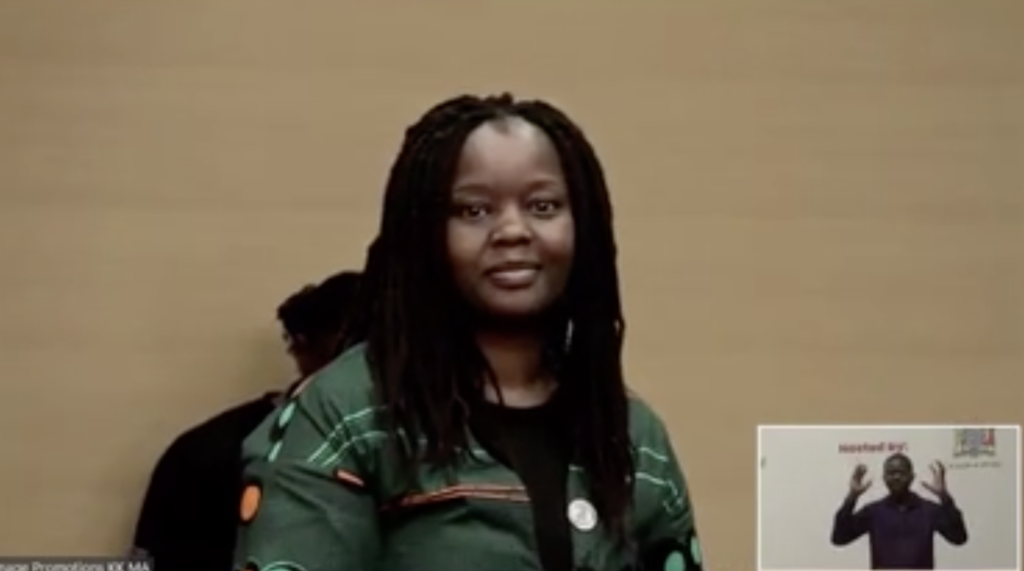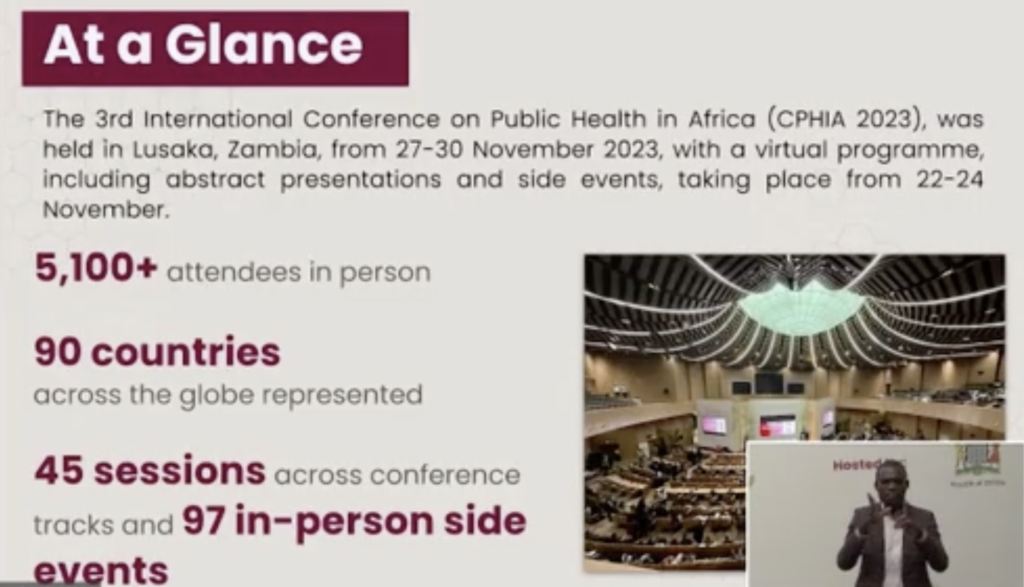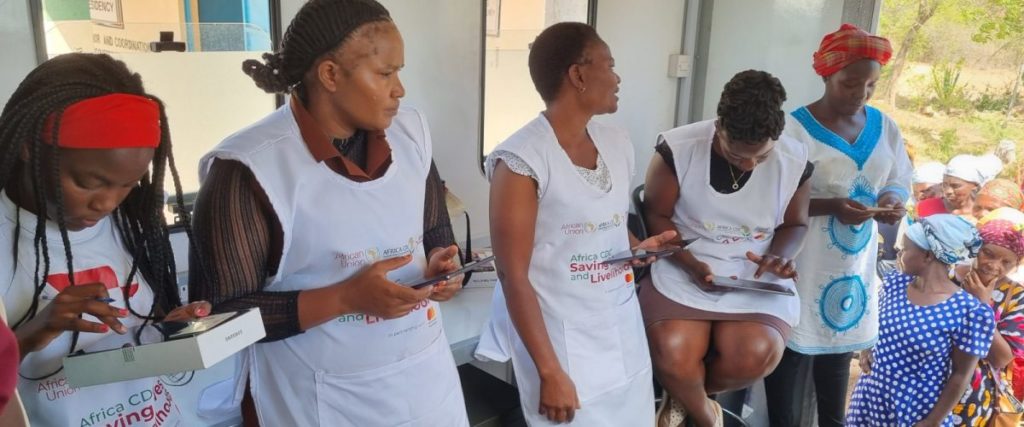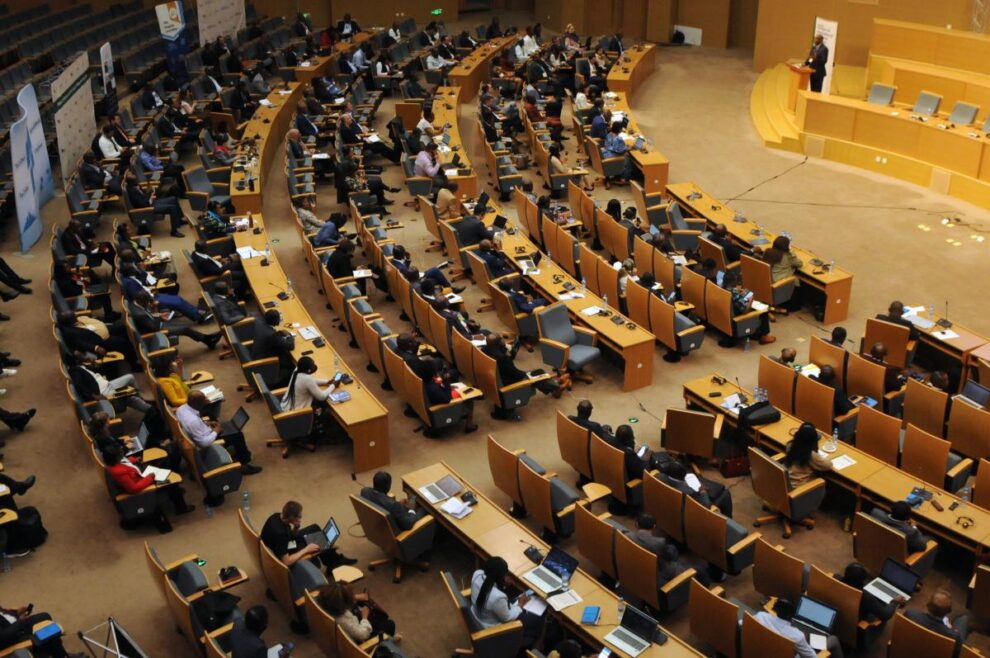LUSAKA, Zambia – The silver lining to Africa being denied access to COVID-19 vaccines during the pandemic is how it has galvanised continental leaders to focus on self-reliance – instead of depending on wealthy countries for assistance.
The determination to build the continent’s health capacity was abundantly evident at this week’s Conference on Public Health in Africa (CPHIA) hosted by the Africa Centres for Disease Control and Prevention (Africa CDC).
“Having a major conference like CPHIA on the continent here in Africa means that we can change the narrative. It means that we can lead the conversation. We can change it by centring what matters most to African communities and spotlighting extraordinary science from African researchers that would normally go unnoticed,” said Shingai Machingaidze, Africa CDC’s acting chief scientist and a rising star in global health.

“There have been concerns raised about access and representation at global health conferences and meetings, and many of our African leaders have raised these concerns, including visa challenges,” Machingaidze added in an address to the conference’s closing plenary on Thursday.
It is often extraordinarily difficult for African scientists to get visas for North America and Europe, even when their papers have been accepted at international conferences.
The Africa CDC – which was only launched in 2017 – won the respect of member states for how hard it fought for the continent during the pandemic.
This support was reflected in the fact that conference attendance surpassed the body’s expectations by over 1000 delegates – attracting 5,100 delegates in-person and 30,000 online – double that of the first in-person CPHIA in Rwanda last year.

Multiple disease outbreaks
The obstacles are huge. Africa has already experienced 158 health emergencies this year alone, of which 90% were infectious diseases and three-quarters were zoonotic diseases (passed on from animals), according to Dr Merawi Aragaw Tegegne, Africa CDC’s head of surveillance and disease intelligence.
One new pathogen a year has emerged on the continent for the past 30 years – again, three-quarters from animals – adding to the already daunting stack of threats, Merawi told the conference.
African countries are ill-prepared for pandemics, scoring an average of 29.1 out of 100 in the Global Health Security (GHS) Index.
None of the continent’s 55 states scored over 20% for biosecurity, and only two countries – Kenya and South Africa – scored over 50% for biosafety capacity, revealed Dr Talkmore Maruta, director of programmes at the African Society for Laboratory Medicine.
Many countries simply lack the capacity to comply with international agreements, including the World Health Organization’s (WHO) International Health Regulations (IHR) and the United Nations Biological Weapons Convention.
The biggest obstacles are the shortage of appropriately trained staff, lack of resources, and inadequate or unclear regulations.
There are also tussles between government departments – primarily defence, health, environment and agriculture – about who should take control of biosecurity when the legal framework should ensure shared responsibility, according to Maruta.
Preparing for climate crises

But the continent is not only threatened by diseases. Africa is particularly vulnerable to extreme weather events, and Africa CDC believes that “climate change poses the biggest health threat” this century.
“As I speak, we have 18 countries affected by cholera with more than 4,000 deaths,” Dr Jean Kaseya, Director General of Africa CDC, told the conference.
“We have multiple West African countries affected by dengue. The flooding in a number of countries including Libya, the earthquake in Morocco, and a number of other natural disasters, are showing the linkage between climate change and health in Africa,” said Kaseya.
When Cyclone Freddy battered Mozambique, Madagascar and Malawi in February, the devastating storm was followed by the largest and most deadly cholera outbreak in Malawi’s history. Mozambique and Madagascar were not spared either, as massive flooding displaced millions and destroyed primary health care services across the two countries.
Yet many health officials are so overwhelmed with current diseases that preparing for climate change seems “futuristic”, according to Dr Eduardo Samo, Director General of Mozambique’s National Institute of Health.
He appealed for fragile health systems to become resilient to extreme weather events, particularly at the community level, added Samo.
“This can be a simple thing like making sure that the roof of a health facility is built so that it does not get blown off and the facility is flooded during a storm,” he explained.
Under-funded and under-skilled
The 55 African states spend an annual average of $50 per person on health – far too little to cover all people’s health needs. In addition, their already vulnerable health systems were severely affected by COVID-19.
Back in 2001, African Union members committed to allocating at least 15% of their budget each year to the health sector in what became known as the Abuja Declaration. Virtually none have done so.
But Sara Hersey, director of collaborative intelligence at the WHO’s Hub for Pandemics and Epidemic Intelligence in Berlin, says that there have been significant improvements as a result of COVID-19.
The pandemic brought “an influx of capacity, support and focus on health security”, said Hersey.
“We’ve seen substantial changes in the capacity for surveillance. Risk communication has improved dramatically as has health service provision and health emergency management,” she said.
“We need to keep this momentum and sustain the capacity that we have already built. Critical to this is the role of the national public health agencies, including national health institutes, CDCs and institutes that lead pandemic preparedness and response.”
Since 2017, 18 African countries have established national public health agencies or are in the process of doing so – including even one of the continent’s poorest countries.
New collaborations

While money is always a challenge, several promising collaborations have emerged.
Earlier this year, Africa CDC and the WHO’s Africa and Eastern Mediterranean Region (EMRO) launched a Joint Emergency Preparedness and Response Action Plan (JEAP) to address emergency preparedness and response in Africa.
JEAP outlines the responsibilities of each organisation – there have been territorial disputes between Africa CDC and WHO in the past – as well as six areas of collaboration, including assistance to countries with genomic sequencing, stockpiling of emergency supplies, and workforce readiness and deployment.
Other resources come from the Mastercard Foundation, which announced at the conference that it was entering the second phase of its $1.4 billion collaboration with Africa CDC to better prepare countries for the next pandemic.
Phase 2 of the ‘Saving Lives and Livelihoods’ collaboration will focus on completing the vaccination of healthcare workers and vulnerable groups, training community health workers, bolstering national public health institutions, laboratory capacities and local manufacturing of vaccines, therapeutics and diagnostics.
Earlier this month, Africa CDC also announced that had set up a continental structure to train and integrate two million community health workers into national health systems.
In 2022, the African Union (AU) resolved to set up an Africa Epidemics Fund, and this is expected to be launched in February 2024, according to Devex. South Africa’s President Cyril Ramaphosa is the continent’s pandemic envoy and is expected to spearhead the fundraising for this.
The US government is also supporting continental pandemic preparedness efforts.
Meanwhile, the Partnership for African Vaccine Manufacturing (PAVM) is driving the continent’s lofty ambition to rapidly ramp up vaccine, medicines and diagnostic production. At the start of the conference, Kaseya described the African Union’s ambition to produce 60% of the vaccines that it needs on the continent by 2040 as “the second independence” for the continent.
“Many African countries got their independence [from colonisers] in the 1960s, but we saw in COVID that we are not independent,” Kaseya told a media briefing at the start of CPHIA. “Other continents locked their doors and we were left beyond.”
The glaring inequity that emerged during the pandemic has galvanised the African health sector and donors, while the current WHO negotiations for a pandemic treaty are keenly focused on equity measures.
At the close of the conference co-chair Professor Margaret Gyapong stated: “Collective leadership is critical to fight the next health crisis. Listen, trust each other, and work together. We have the tools and we must use them now. And yes, invest in women.”
Source : Health Policy Watch











